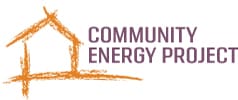Public health doesn’t exist in a bubble, with many factors coming into play beyond just everyday healthcare and accessibility of medical services. One such factor to consider is energy efficiency – and it starts at home.
We tend to forget that there’s a link between our family’s health and our home’s energy consumption. This is partly to do with the fact that there’s still a lack of awareness surrounding the energy costs of running a home. As public health continues to grow in importance, it’s our job to start at ground zero and try to protect our families the best way we can. Thankfully, an energy efficient home is a great place to start.
Understanding energy efficiency
The link between energy and public health isn’t new — researchers have been championing it for years now. A 2013 study published in the Annual Review of Public Health states as much, arguing that today’s energy systems have contributed to worsening public health (as is the case with fossil fuels, carbon emissions, and the like). And in the following seven years this has only got worse. This makes energy efficiency necessary from a general health standpoint, as cutting emissions can help lessen climate-change related diseases.
Indeed, energy efficient homes may be the new gold standard worldwide. The Welsh Government has planned to make all homes powered and heated with sustainable energy sources by 2025, in line with the UK’s mission to reduce greenhouse gases by 2050. Building a house, retrofitting it with heaters, and even the circulation of air around a home all adds to carbon emissions. That said, many of us don’t realize these effects as they add up over time.
As climate change continues, so too will the health risks associated with it, and this is problematic news in light of the country’s current healthcare crisis. Maryville University highlights that the U.S. is currently facing a shortage of at least 100,000 family medicine doctors, which will become an even bigger problem should families face drastic health concerns brought about by the effects of climate change. Moreover, there’s also the increase of the aging population, who risk suffering the most from the lack of medical help. With climate change soon to become one of the leading causes of illness, the link between being energy efficient and public health is more important than ever before.
Taking the necessary steps at home
As mentioned at the beginning of this article, more homeowners need to look into energy efficient home solutions. Such protective measures can help keep you and your family out of the hospital, especially as these tech innovations have yet to come into fruition. Portland continues to be one of the most livable and environmentally-friendly cities in the country, with government planners trying to enhance the availability of services and ensure that your necessities are no more than a bike away. That said, it will take more than just biking to curb the long-term impacts of climate change.
As a starting point, switching to renewable energy can help you save on your electricity bill. As a prime example, this new solar panel farm in Nevada is set to provide power to its residents, joining the likes of the Sweetwater farm in Wyoming and the Palen farm in California. The financial savings from these projects can then help you save up emergency funds should a real healthcare issue come up. Since solar panels directly power your home, our post on Solar Panels In The PNW lessen the usage from your current utility connection – this ends up saving you lots of money in the long run.
On the other hand, energy efficiency can also create safer homes right from the get-go. Our guide to ‘Indoor Air Quality’ points out that pollutants and high moisture levels can find their way into your home: carbon emissions, mold, and pollen might be right under your nose. While it’s uncommon for any of these to reach lethal levels within your home, prolonged exposure might lead to sickness (or else worsen the effects of someone who is already sick).
Families who are serious about energy efficiency may also consider a visit from an energy auditor. Energy auditing isn’t a process that most homeowners consider, but it’s a good way to see how much energy your home is using and thus where to make certain changes. After examining your home, energy auditors can then help you come up with specific moves to improve your home’s energy usage. You can also go ahead and check out CEP’s Home Solutions and consult with one of our Home Advisors. From there, you can get your Home Energy Score that will then reflect your home’s annual energy use and costs compared to the average home in Portland.
With the state that our climate is in right now, energy usage is becoming an increasing concern among private individuals. Learning about energy efficiency is a great first step in combating the effects of climate change in your own home, which can then lead to your improving your family’s overall health.
Article exclusively written for Community Energy Project
By Susanna Kate


